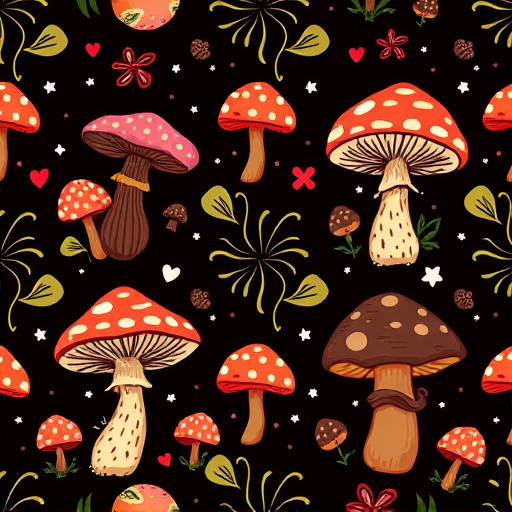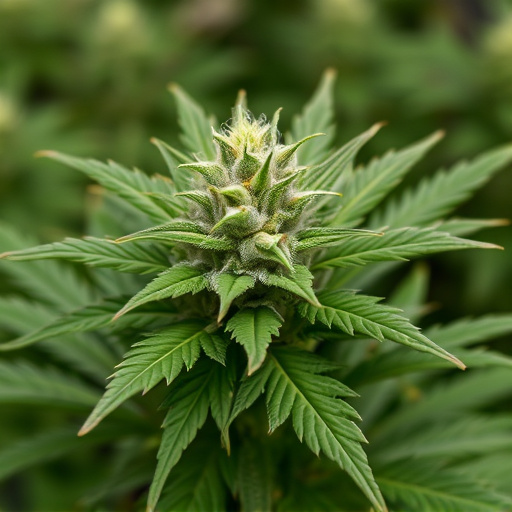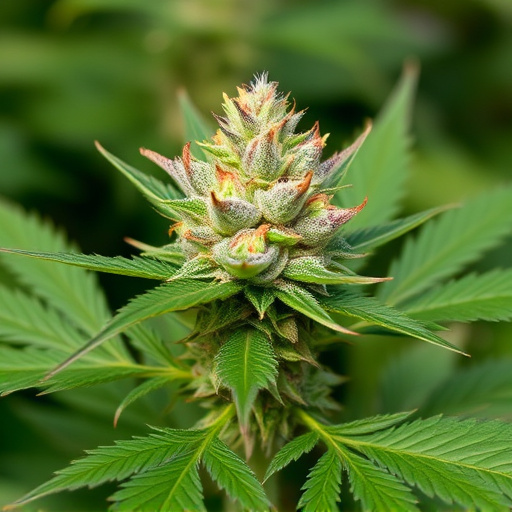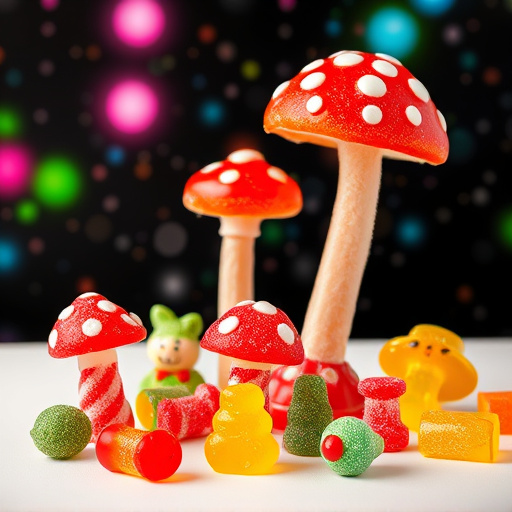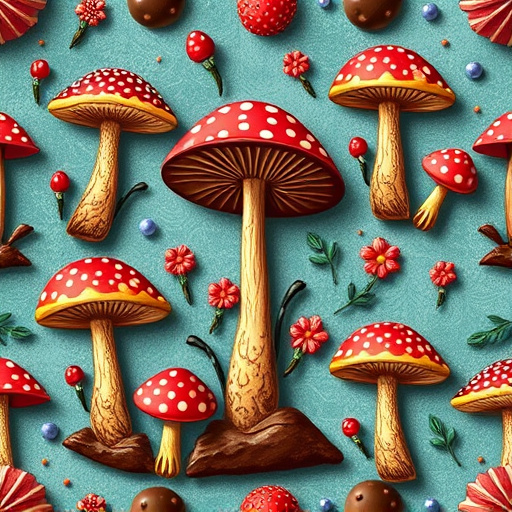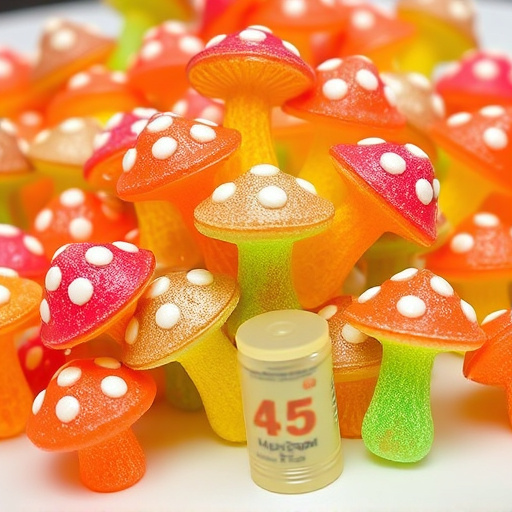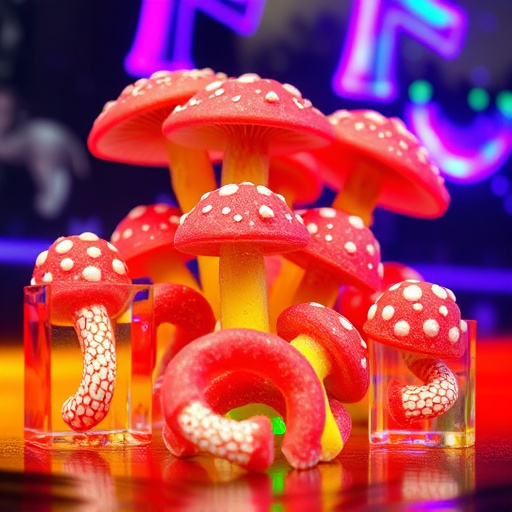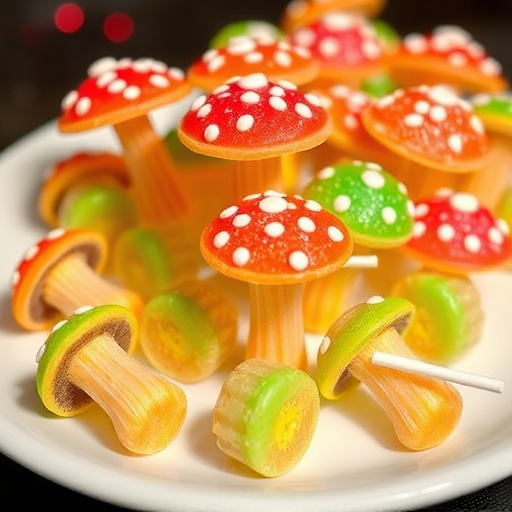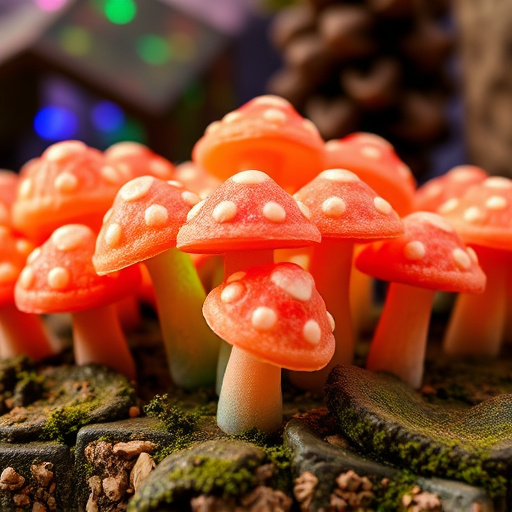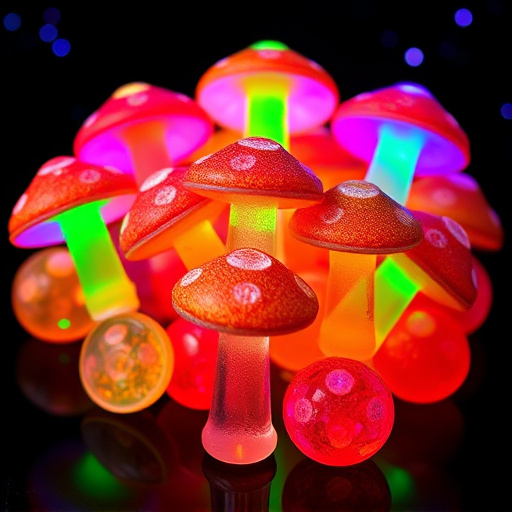Magic mushroom gummies, rich in psilocybin, offer a novel approach to cognitive enhancement through their profound impact on neural connectivity. By interacting with serotonin receptors, these compounds promote neuroplasticity, allowing the brain to form new neural connections and improve mental clarity, creativity, problem-solving skills, and emotional well-being. Recent studies highlight their therapeutic potential for treating mental health conditions like depression, anxiety, and PTSD by altering brain function and connectivity, suggesting a possible revolution in neuroscience and psychology.
“Unleash your mind’s potential with a revolutionary approach to focus: Magic Mushroom Gummies. This modern twist on ancient psychedelics offers an intriguing avenue for cognitive enhancement, particularly in terms of neural connectivity and brain function.
Our article delves into the science behind these unique gummies, exploring the powerful compounds psilocybin and psilocin. We examine current research highlighting their impact on brain wiring and cognitive flexibility, backed by compelling case studies. Furthermore, we compare them to traditional nootropics, discuss potential benefits and drawbacks, and explore the holistic nature of psychedelic-assisted therapy for improved focus.”
- The Science Behind Magic Mushroom Gummies and Their Potential Benefits
- – Explaining the active compounds in magic mushrooms (psilocybin/psilocin)
- – Current research on psilocybin's impact on brain function and neural connectivity
The Science Behind Magic Mushroom Gummies and Their Potential Benefits
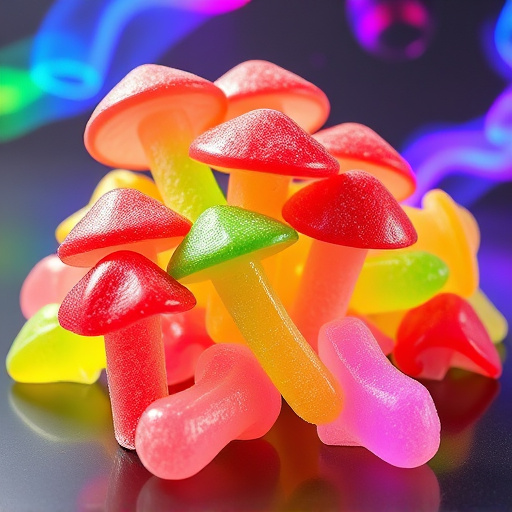
The science behind magic mushroom gummies explores their potential as tools for enhancing focus and cognitive function, primarily through their effect on neural connectivity. Research suggests that psilocybin, the active compound in magic mushrooms, can promote neuroplasticity—the brain’s ability to form new neural connections. This process may help strengthen existing pathways, leading to improved focus and mental clarity.
These gummies work by interacting with serotonin receptors in the brain, specifically targeting the 5-HT2A receptors. This interaction can unlock a range of potential benefits, including heightened creativity, better problem-solving skills, and enhanced emotional well-being. By fostering neural connectivity, magic mushroom gummies may offer a unique approach to cognitive enhancement, providing users with a more profound sense of focus and mental agility in their daily lives.
– Explaining the active compounds in magic mushrooms (psilocybin/psilocin)
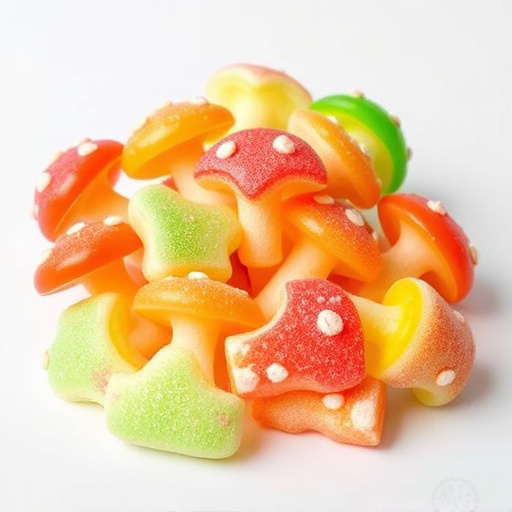
Magic mushrooms, scientifically known for their psychedelic effects, contain powerful active compounds called psilocybin and psilocin. These compounds are responsible for altering consciousness and inducing unique psychological experiences. When consumed, psilocybin is converted into psilocin in the body, which acts on serotonin receptors, particularly those involved in neural connectivity.
Neural connectivity refers to the intricate network of connections between neurons, enabling communication across different areas of the brain. Psilocin interacts with these receptors, enhancing and modifying neural activity, leading to changes in perception, mood, and thought patterns. Research suggests that this interaction may have therapeutic benefits, including improved focus and cognitive function. Magic mushroom gummies, as an edible form, offer a convenient way to experience these effects, potentially providing a natural approach to enhance concentration and mental clarity.
– Current research on psilocybin's impact on brain function and neural connectivity
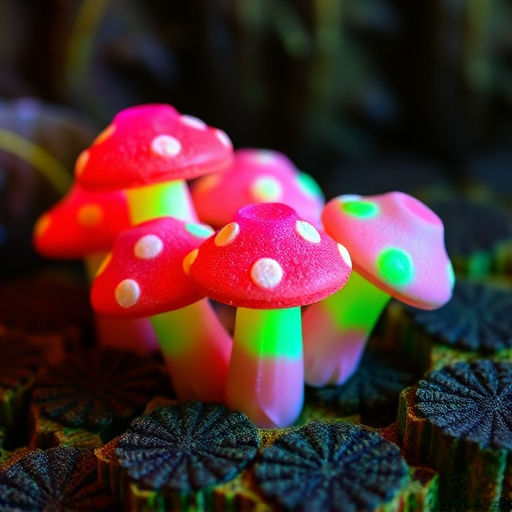
Recent studies have shed light on the potential therapeutic benefits of psilocybin, the active compound found in magic mushroom gummies. Research suggests that psilocybin can significantly impact brain function and neural connectivity, leading to promising results in various areas of mental health treatment. Neuroimaging techniques have revealed that psilocybin can induce changes in brain activity patterns, with particular emphasis on regions associated with perception, emotion, and self-awareness.
These studies indicate that magic mushroom gummies may enhance neural plasticity, fostering new connections between different brain regions. This phenomenon could underlie the potential of psilocybin to alleviate symptoms of depression, anxiety, and even PTSD. As research continues to explore the mechanisms behind these effects, the unique properties of psilocybin offer a novel approach to understanding and treating complex mental health disorders, potentially revolutionizing the field of neuroscience and psychology.
In light of the current research, magic mushroom gummies present an intriguing approach to enhancing focus and cognitive functions. The active compounds, psilocybin and psilocin, have shown promising effects on brain connectivity and neural networks. While more studies are needed to fully understand their potential, these natural compounds offer a unique and alternative path for individuals seeking improved concentration and mental clarity. Magic mushroom gummies could be a game-changer in the nootropics space, providing a safe and accessible way to navigate enhanced cognitive states.
